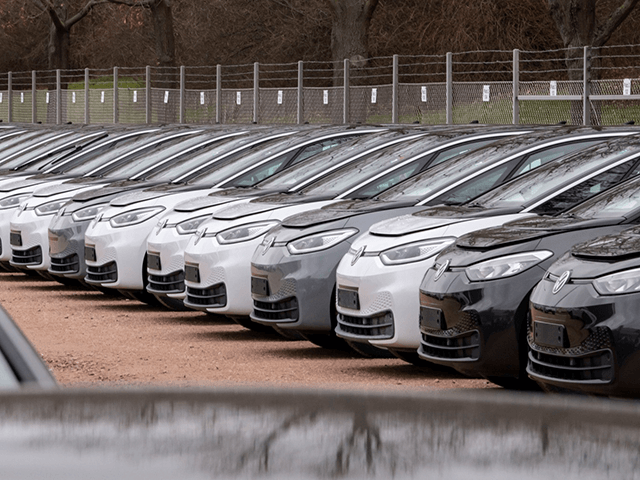As the United Nations climate change summit nears, the priorities of globalists and environmental activists are being made public, including the effort to enforce what transportation people are allowed to sell and use.
When world leaders gather in Glasgow they will be transported in electric vehicles as virtue signaling opposition to fossil fuel-powered vehicles, which contribute to so-called climate change.
But now there is another threat preventing the complete transition from gas-powered to electric vehicles, according to Rob de Jong, head of the Sustainable Mobility Unit at the United Nations Environment Program (UNEP).
Jong will be pushing to regulate the used car market, according to the Modern Diplomacy website:
While many developed nations have pledged to phase out petrol and diesel vehicles in the next two decades, the transition will be more complicated in developing countries, where old cars imported from Europe, Japan and the United States are often the only affordable option.
Many exported used cars would not meet safety or emission standards in their countries of origin, with some even stripped of key parts or safety features, such as air filters. Ideally, these vehicles will be rapidly phased out as part of the global transition to electric mobility but, in the meantime, experts say the trade needs to be regulated, not least because the global fleet will double by 2050, with some 90 per cent of this growth taking place in low- and middle-income countries.
UNEP has long been working with partners to tighten regulations in importing countries while urging developed countries to stop exporting vehicles that fail environment and safety inspections.
“Over the years, as demand for affordable, second-hand cars has grown in developing countries, we have seen an increase in the export of polluting, outdated vehicles from developed countries,” de Jong said. “These issues are all interconnected. If we want the global fleet to go electric, this problem needs to be tackled as part of that.”
Last October the U.N. released a report that claimed the European Union, Japan, and the United States exported 14 million used light duty vehicles worldwide between 2015 and 2018.
“The report called for harmonized regulations at a global and regional level to ‘ensure used vehicles make meaningful contributions to shifting to cleaner, safer, and affordable mobility,’” the website article stated. “This could notably happen if used low- and no-emissions vehicles are promoted as an affordable way for developing countries to access advanced technologies.”
As it has since its inception, the U.N. in Glasgow will advance a globalist agenda, including in the transportation sector.
“It doesn’t matter if climate emissions are emitted in the Netherlands or Kenya,” de Jong said, “They count towards global emissions and these need to get to zero for the global vehicle fleet by 2050.”
“With climate change, you cannot ship away a problem,” de Jong said. “It is still a problem.”
Ironically, fossil fuel use is expected to set records in next year, according to Bloomberg Green:
Across the world, fossil fuels are making a remarkable comeback as a super-charged recovery from the pandemic boosts demand. For all the green energy promises and plans, that transition is in its infancy, and the world still leans heavily on fossils. It’s an addiction built up over two and a half centuries, and it runs deep.
“Adding it all up, fossil fuel demand is already flirting with pre-pandemic levels, which means emissions are on the rise too. On current trends, the combined consumption of coal, natural gas and oil is likely to hit an all-time high by mid-2022,” Bloomberg Green concluded.
Follow Penny Starr on Twitter or send news tips to pstarr@breitbart.com.

COMMENTS
Please let us know if you're having issues with commenting.